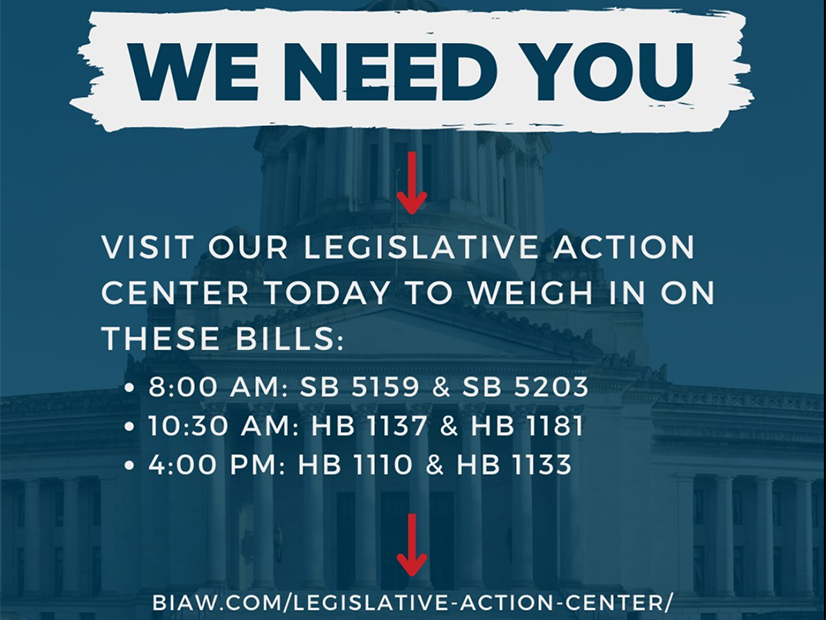OLYMPIA, Wash. — Washington’s home construction industry and Realtors said this week they oppose a bill to make climate change a part of local governments’ land-use planning, saying it would make it difficult to build homes in the “wildlife-urban interface.”
Senate Bill 5203 would amend the Growth Management Act to require comprehensive proposals, development regulations and regional plans to support state greenhouse gas emission targets and improve resilience to climate impacts and natural hazards. A similar bill is working its way through Washington’s House.
“It would chart a course for our communities over time,” bill sponsor Sen. Liz Lovelett (D) told the Senate Local Government, Land Use and Tribal Affairs Committee Tuesday.
She added that bill would encourage density over urban sprawl, which was an intention of the GMA when it was enacted in 1990. The law sets land use designation and environmental protection requirements for all Washington counties and cities.
Josie Cummings, representing the Building Industry Association of Washington, told the committee that adding climate change to the Growth Management Act would codify wildfire risks to the point where that factor would handicap new housing. Washington has experienced an increase in wildfires, which has been largely blamed on climate change. Wildfires have frequently threatened Washington’s small towns and villages in rural areas.
“This would reduce housing,” said Bill Clarke, representing the Washington Realtors.
In contrast with the industry groups, a large majority of the public testimony and sign-in sheets favored the bill, with 1,218 signed up at the hearing in favor of the bill without testifying, while 15 signed up opposing the bill without testifying.
Nineteen of 23 people testifying Tuesday supported the bill, and two were undecided. Supporters included state agencies, environmental groups, some individual small town council members and three disabled people, who argued the cities will improve their public transit authorities if trimming emissions leads to more bus service.
John Flanagan, a senior policy adviser to Gov. Jay Inslee, said climate change should be a factor in land use decisions at all levels of government. “We cannot rely on the actions of a few. We need to be all in,” Anacortes city council member Ryan Walters said.
“It only makes sense that the [Growth Management Act] align with other state laws,” Leah Mission of Climate Solutions said. She was referring to state law requiring Washington’s carbon emissions to be trimmed by 95% by 2050.
“If we passed this 10 to 20 years ago, we wouldn’t be in this dire climate situation that we are right now,” Redmond City Council President Jessica Forsythe said.
“We need to plan for rising tides,” Adam Maxell of Audubon, Wash. said. Washington has an extensive coastline.
Some argued that if trimming emissions leads to more bus service, then the state government needs to provide money to support expanded public transit. “If you move forward, it is critical you provide funding for this as well,” said Paul Jewell, representing the Washington Association of Counties, which has not yet decided whether to support or oppose the bill.
This is the third year that this bill has worked its way through Washington’s legislature.
The House passed it in 2021, but it stalled in a Senate committee. In 2022, both the Democrat-controlled House and Senate teetered on the edge of passing the bill before Republicans in the Senate and House used parliamentary maneuvering to kill the bill on the final day of the session.



